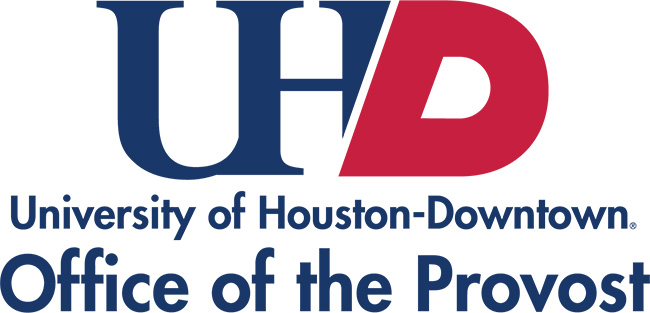
Dear UHD Colleagues,
Recent events have brought to light issues surrounding academic freedom, particularly as they pertain to topics that are addressed in a wide variety of courses offered at the University of Houston-Downtown. I am aware that concerns have been expressed across campus and disciplines. The University of Houston System recognizes the importance of having conversations about current legislation and executive orders and how they may impact teaching and learning on our campuses. On Monday, September 22, Vice Chancellor and General Counsel Dona Cornell met with the deans, department chairs, and associate deans to discuss the UH Policy on academic freedom and answer questions. During that meeting, we were assured that the University of Houston System is deeply committed to academic freedom and due process obligations in the face of any claim that a faculty member has violated state or federal law.
Our commitment to academic freedom is strong as evidenced by the UHD and UHS policies - UHD PS 03.A.25, UHD PS 04.A.08 - Freedom of Expression, and 21.03 of the UHS Academic Freedom Policy(excerpt below). UH has also developed a Freedom of Expression FAQ document, for your reference.
UHS Board of Regents Policies
21.03 Academic Freedom
To establish and clarify the rights and responsibilities of the faculty pursuant to academic freedom, the Board adopts the following policy:
21.03.1 The faculty member is entitled to full freedom in research and in the publication of the results, subject to the adequate performance of the faculty member’s other academic duties; but research for personal pecuniary return should be based upon an understanding with the authorities of the university.
21.03.2 The faculty member is entitled to freedom in the classroom in discussing the subject matter, but the faculty member should be careful not to introduce into the teaching controversial matter which has no close relation to the subject.
21.03.3 The faculty member is a citizen, a member of a learned profession, and an officer of an educational institution. When speaking or writing as a citizen, the faculty member shall be free from institutional censorship or discipline, but the faculty member’s special position in the community imposes special obligations. As a person of learning and an educational officer, the faculty member should remember that the public may judge the profession and the institution by the faculty member’s verbal or written comments. Hence the faculty member should at all times strive for accuracy, exercise appropriate restraint, show respect for the opinions of others, and make every effort to indicate that the faculty member is not speaking for the institution.
(Policy last updated 8/24/2023)
--------------------------
It is important to focus on academic freedom in conjunction with professional responsibility. What does this mean for you as you are engaged with students in your classrooms? These are some things to consider:
For the vast majority of our courses:
- Teach the syllabus. Keep lectures, examples, and assessments aligned with the catalog description and stated learning outcomes.
- Stay apolitical in class. Personal political commentary or advocacy is almost never relevant to our courses. Your personal political stance is not apart of the curriculum.
- Professional climate. Model civil, evidence-based discussion; evaluate students on outcomes,not viewpoints.
For the smaller subset that intersects policy/ethics, I can make the following suggestions for you to consider which balance academic freedom and are compliant with university policies state and federal laws, and executive orders.
- Relevance test. If a topic could be sensitive, make clear to the students how it advances a specific learning outcome.
- Discipline-specific leans first. Focus on methods and standards of your respective discipline: assumptions, data quality, models, and constraints.
- No personal advocacy. present frameworks and reputable perspectives without endorsing or opposing current legislation, parties, or officeholders.
- Brief neutral framing. Open with a one-sentence purpose; invite analysis, not agreement.
- Documentation. Keep a slide or note explaining the pedagogical purpose and linked outcomes.
You will be receiving additional information from your deans and chairs as we move forward through this academic year. I greatly appreciate all that you are doing to support and promote our students' success in their programs of study.
Respectfully yours,
Deborah E. Bordelon, Ph.D.
Senior Vice President for Academic Affairs and Provost

